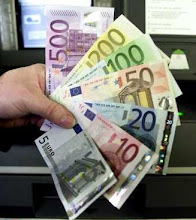In the past we had to rely to a large extent on the services of a travel agent when planning and booking a holiday. This was particularly true if planning a trip abroad. However with internet sites and easy communication via email, it is possible to research and organise your holiday plans online using separate providers for accommodation, travel, insurance and so on. This freedom to shop around takes time but will save you money.
Accommodation
The greatest expense on holiday is likely to be the accommodation and travel. Accommodation at home and abroad can now often be booked direct with the owner. Thanks to the internet, owners do not have to rely on advertising through large companies, so prices are not inflated by agent’s fees. Of course some owners do not want to deal direct with customers and still use agents. You can often find small companies local to your chosen destination. They have fewer overheads so prices are lower and you can also benefit from their detailed knowledge of their properties and the area.
Travel
The increasing number of no frills budget airlines have, of course, made a big difference to many travel plans. Look out for offers online and in the media, particularly for off peak periods. If you are travelling to Europe then you may want to take your own car. Ferry crossings can seem expensive at first sight but remember the price quoted usually includes several passengers and you won’t have to think about a hire car. Short crossings and the Channel Tunnel are cheaper but may involve more driving, depending on your holiday destination.
Travel insurance costs
Never try and save money by ignoring travel insurance completely. This could end up becoming a costly mistake if you have to cancel, need medical attention abroad, or a breakdown service. However, you do not have to use the policy offered by the travel company. Shop around for an independent deal from another source. Online comparison sites make this an easy process. If you are a frequent traveller you can save money by buying an extended travel insurance package. This works like a season ticket so you will be covered however often you travel during the agreed period.
Try to be flexible
If you are flexible with dates and locations it is possible to find very good last minute deals. There are websites which specialise in assisting with this. However, if you have to, or wish to, plan ahead then if at all possible avoid peak holiday periods. This will immediately give you huge savings.
Of course many people are tied to school holidays when prices are inflated but there are still things you can do to cut costs. Try to find accommodation with flexible change over days so that you can choose a ferry or flight mid week rather than the more expensive weekend options. Look out for reduced rates for children and book direct with the owner if possible.
How about trying something completely different? You may be used to all inclusive hotel holidays but self-catering does not have to be a chore. If you stay in a cottage, gite or apartment you do not have to produce elaborate meals. Take the opportunity to browse at local markets for fresh produce or make the most of the weather and barbecue. Shopping and preparing simple food can easily become part of the fun. Most children love the freedom of camping and many sites now have excellent facilities. Luxury ready erected tents and mobile homes are available and if you book direct with the campsite it will be cheaper than using a large company.
When you are on holiday
So what about once you have arrived at you destination? Although you may wish to have the freedom to travel around, it is worth booking at least some accommodation ahead. It is likely to be cheaper this way and will save you having to accept an overpriced hotel simply because you cannot find anything else when you arrive. Similarly if you know you want to hire a car don’t wait until you arrive at the airport to organise a deal. There are many guide books available which are aimed at particular groups such as students. However, these can be useful information sources for anyone on a budget as they offer advice on good value accommodation, restaurants, and places to visit.
Choose a destination where you know the cost of living is reasonable and check the exchange rate is favourable. Beware of high commission rates and make sure you are not paying more than necessary. Make sure you don’t become a victim of fraud by keeping your credit cards safe. Take necessary telephone contacts with you in case they should get lost or stolen and need to be cancelled.
And finally ….
Whether you take an annual fortnight, opt for a number of short breaks, or you are looking forward to the long haul trip of a lifetime, holiday planning should be fun. The end result will be well worth the time invested in planning.
Resource: http://www.isnare.com/?aid=93056&ca=Finances
